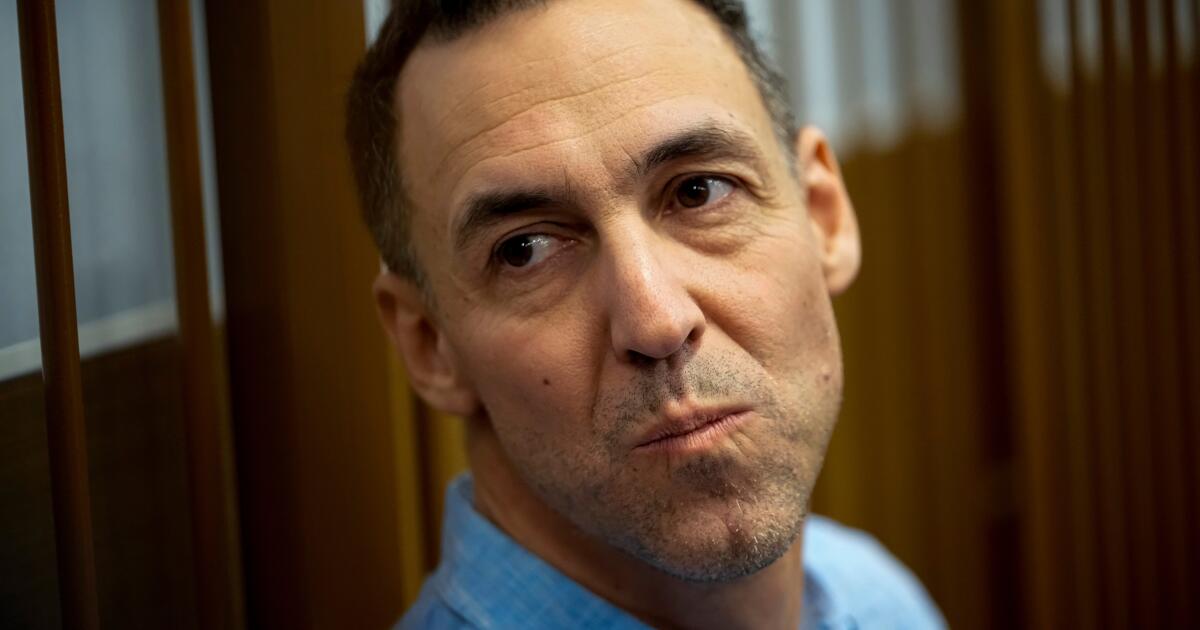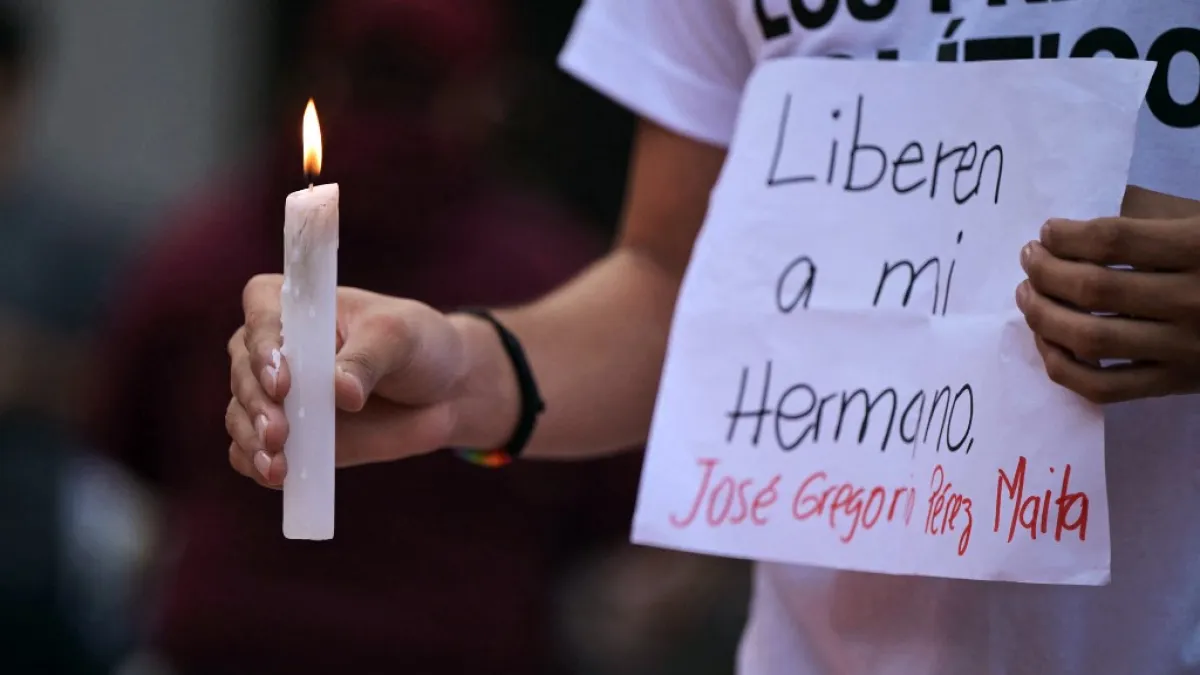Russia frees French political scholar in a prisoner swap for a basketball player
PARIS — Laurent Vinatier, a French political scholar serving a three-year sentence in Russia and facing new charges of espionage, has been freed in a prisoner swap with France, officials said Thursday.
French President Emmanuel Macron said on X that Vinatier is “free and back in France,” expressing “relief” and “gratitude” to diplomatic staff for their efforts to win his release.
In exchange, Russian basketball player Daniil Kasatkin, jailed in France and whose extradition was demanded by the United States, was released and returned to Russia on Thursday, Russia’s Federal Security Service, or FSB, said in a statement.
Russian state news agency Tass released what it said was FSB footage showing Vinatier in a black track suit and winter jacket being informed about his release, to which he said “Thank you” in Russian, being driven in a car and boarding a plane after Kasatkin descended from it. It wasn’t immediately clear when the video was filmed.
Vinatier was arrested in Moscow in June 2024. Russian authorities accused him of failing to register as a “foreign agent” while collecting information about Russia’s “military and military-technical activities” that could be used to the detriment of national security. A court convicted him and sentenced him to a three-year prison term.
Last year, Vinatier was also charged with espionage, according to the FSB — a criminal offense punishable by 10 to 20 years in prison in Russia.
The scholar has been pardoned by Russian President Vladimir Putin, the security agency said.
France’s Foreign Ministry said that Vinatier was being welcomed at the Quai d’Orsay alongside his parents by Foreign Minister Jean-Noël Barrot.
The ministry said that Barrot informed ambassadors of Vinatier’s release “at the moment of the president’s tweet,” during a closed-door address. Barrot would post publicly “after his meeting with Laurent Vinatier and his family,” the ministry said.
Putin has promised to look into Vinatier’s case after a French journalist asked him during his annual news conference on Dec. 19 whether Vinatier’s family could hope for a presidential pardon or his release in a prisoner exchange. The Russian president said at the time that he knew “nothing” about it.
Several days later, Kremlin spokesman Dmitry Peskov told reporters that Russia had made “an offer to the French” about Vinatier.
Vinatier is an advisor for the Centre for Humanitarian Dialogue, a Switzerland-based nongovernmental organization, which said in June 2024 that it was doing “everything possible to assist” him.
The charges that he was convicted on relate to a law that requires anyone collecting information on military issues to register with authorities as a foreign agent.
Human rights activists have criticized the law and other recent legislation as part of a Kremlin crackdown on independent media and political activists intended to stifle criticism of the war in Ukraine.
In recent years, Russia has arrested a number of foreigners — mainly Americans — on various criminal charges and then released them in prisoner swaps with the United States and other Western nations.
The largest exchange since the Cold War took place in August 2024, when Moscow freed journalists Evan Gershkovich and Alsu Kurmasheva, fellow American Paul Whelan, and Russian dissidents in a multinational deal that set two dozen people free.
Kasatkin, the Russian basketball player freed in Thursday’s swap, had been held since late June after his arrest at Paris Charles de Gaulle airport at the request of U.S. judicial authorities and was held in extradition custody at Fresnes prison while French courts reviewed the U.S. request.
Kasatkin’s lawyer, Frédéric Belot, told the Associated Press that the player had been detained last June at the request of the United States for alleged involvement in computer fraud. Belot said that Kasatkin was accused of having acted as a negotiator for a team of hackers. According to the lawyer, Kasatkin had purchased a second-hand computer that hadn’t been reset.
“We believe that this computer was used remotely by these hackers without his knowledge,” Belot said. “He is a basketball player and knows nothing about computer science. We consider him completely innocent.”
Belot, who represents both Vinatier and Kasatkin, added that the French researcher is “totally innocent of the espionage acts that were alleged against him.”
Corbet, Adamson and Petrequin write for the Associated Press.

